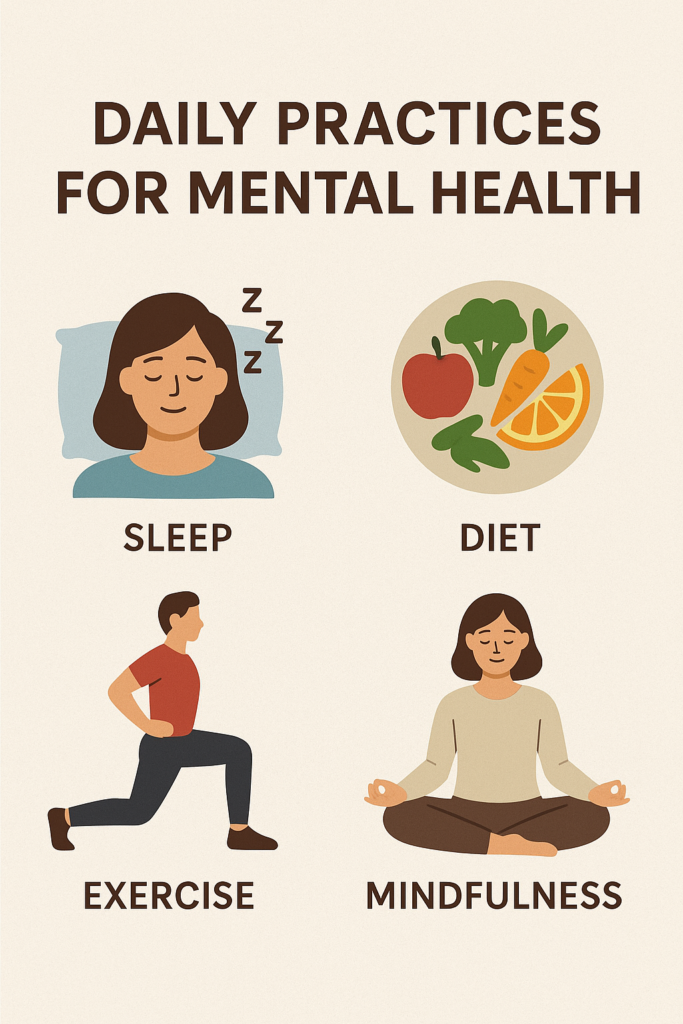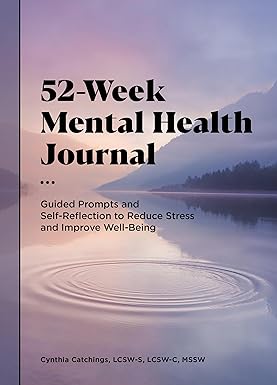How to Maintain Mental Health in a Stressful World
The modern world often feels like it’s moving faster than we can keep up with. Deadlines, financial pressures, work demands, global crises, and personal struggles can quickly pile up, leaving us overwhelmed. In fact, stress has become such a common part of daily life that many people view it as inevitable. But while we may not always control external stressors, we can control how we respond to them and how we nurture our mental health.
Maintaining mental health in a stressful world is not about avoiding stress altogether — that’s impossible. Instead, it’s about building resilience, creating balance, and equipping ourselves with tools to handle life’s challenges without burning out.
This article explores practical strategies, lifestyle changes, and holistic approaches to help you protect your mental well-being.

Why Mental Health Matters More Than Ever
Mental health affects every aspect of life — from relationships and productivity to physical health. Chronic stress has been linked to:
- Anxiety and depression
- Weakened immune system
- Sleep disturbances
- Cardiovascular disease
- Memory and concentration problems
In a world where stressors are constant, maintaining mental health is not just beneficial — it’s essential. The good news? Small, consistent steps can have a profound impact on how you feel.

Key Strategies for Maintaining Mental Health
1. Prioritize Self-Care
Self-care is more than indulgence; it’s maintenance for your mind and body. Creating healthy routines ensures you stay resilient.
- Sleep: Aim for 7–9 hours of quality rest.
- Exercise: Even 20 minutes of walking daily can reduce stress hormones.
- Nutrition: Eat balanced meals rich in whole grains, lean proteins, and fruits.
- Breaks: Step away from work regularly to recharge.
2. Practice Mindfulness and Meditation
Mindfulness is the practice of staying present. Meditation, deep breathing, or mindful walks help calm the nervous system. Apps like Headspace or Calm can be good starting points.
Tip: A supportive yoga mat or meditation cushion can make mindfulness practice more comfortable. Here’s one we recommend FOVERA Meditation Cushion
3. Set Healthy Boundaries
In the age of digital overload, boundaries are critical. Learn to say no when commitments overwhelm you. Turn off notifications during personal time and create work-life balance.
4. Strengthen Social Connections
Humans are social beings. Talking to friends, joining support groups, or simply sharing your day with loved ones reduces feelings of isolation. Studies show social support directly lowers stress levels.
5. Limit Stress Triggers
While you can’t avoid all stressors, you can manage exposure. Reduce negative news consumption, declutter your space, and manage financial or time stress with better planning.
6. Seek Professional Help
There’s no shame in reaching out. Therapists, counselors, or support hotlines can provide guidance and coping techniques. Early intervention often prevents long-term issues.

Practical Table: Quick Mental Health Maintenance Tips
| Strategy | Daily Practice | Long-Term Benefit |
| Regular Exercise | 20–30 mins of walking, yoga, or cycling | Reduces stress hormones, improves mood |
| Balanced Diet | Include omega-3s, fruits, vegetables, grains | Supports brain function, stabilizes energy |
| Sleep Hygiene | Consistent bedtime, no screens before sleep | Improves mood, focus, and resilience |
| Mindfulness & Meditation | 10 minutes of deep breathing or meditation | Enhances calmness, lowers anxiety |
| Social Connections | Call or meet a friend, join a community group | Provides support, reduces loneliness |
| Digital Detox | Limit social media to 30–60 mins per day | Prevents information overload, boosts focus |
| Hobbies & Creativity | Painting, writing, gardening, or music | Encourages joy, self-expression, relaxation |
| Therapy & Counseling | Regular sessions when needed | Provides coping strategies, emotional relief |
Holistic Approaches to Mental Health
Beyond lifestyle changes, many people turn to holistic health solutions. Practices such as yoga, tai chi, aromatherapy, or herbal teas (like chamomile and ashwagandha) can support relaxation. Journaling is another effective outlet to process emotions.
Additionally, gratitude practices — writing down three things you’re grateful for daily — have been shown to rewire the brain toward positivity.
Consider using an aromatherapy diffuser with lavender or chamomile oils to create a calming atmosphere at home Air wick
The Role of Work-Life Balance
Since most stress originates from professional obligations, rethinking how we work is crucial.
- Use productivity tools to manage time.
- Embrace flexible working if possible.
- Take lunch breaks away from screens.
- Avoid bringing work emails into personal time.
A balanced schedule not only boosts mental health but also makes you more effective professionally.
Coping with Global and Personal Stressors
Global events — from pandemics to economic downturns — can amplify stress. While you can’t control them, you can:
- Stay informed without doomscrolling.
- Focus energy on things within your control.
- Engage in community support or volunteering.
Personal stressors such as financial struggles, family conflicts, or health concerns require practical problem-solving combined with emotional resilience.
A guided gratitude journal is a simple way to rewire your brain for positivity 52-WEEK MENTAL HEALTH JOURNAL
When Stress Becomes Overwhelming
It’s normal to feel stressed, but if stress begins interfering with daily life, seek help. Warning signs include:
- Persistent anxiety or sadness
- Loss of interest in activities
- Constant fatigue
- Difficulty concentrating
- Thoughts of self-harm
In such cases, reaching out to a mental health professional is essential.
The world may never slow down — but you can learn to find peace within the chaos. Maintaining mental health in a stressful world comes down to awareness, balance, and proactive self-care. By incorporating daily practices like exercise, mindfulness, healthy eating, and social connection, you can build resilience against stressors.







